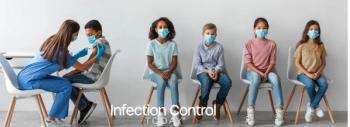
Survey: COVID-19 Test Kit Supply Needs to Triple Before Elective Surgeries Can Restart
COVID-19 testing capabilities would have to increase by at least 211% in order for hospitals and other healthcare facilities to resume providing elective procedures and diagnostic services.
Hospitals will need to be able to do the things they normally did before the COVID-19 pandemic struck in order for reopening plans in the United States to go smoothly-things like elective surgeries, many
Hospitals and other healthcare facilities need to increase their COVID-19 testing capabilities by at least 211% in order for them to resume providing elective procedures and diagnostic services. The data were collected from April 27 to April 30 from 150 hospitals, integrated delivery networks, and ambulatory surgery centers.
Michael J. Alkire, Premiere’s president, said in a
Eighty percent of the respondents said that they would like to increase their ability to conduct on-site COVID-19 testing, but many noted shortages of chemical reagents (41%) and viral swabs (40%) that are needed to perform the COVID-19 tests. In addition, only 32% of respondents said that they would be able to test all frontline healthcare workers. Regarding the testing of ancillary workers such as environmental services staff, only 22% of respondents said they could manage that.
Eighty-seven percent of respondents said that they intend to test patients admitted for an elective procedure for COVID-19; only 27% said they could test patients who want a diagnostic service. Meanwhile, 54% said that they will continue to bar visitors to conserve on COVID-19 tests.
“This represents a major challenge to patient care, as an inability to offer elective procedures and diagnostics can mean a missed opportunity to detect preventable illnesses early or begin treatments that are necessary for health and wellness,” Alkire said in the press release. He added: “Without adequate supplies, health systems are having to make hard choices to be as judicious as possible with their COVID-19 testing capacity. To reach an ideal state where testing is available for all healthcare workers, patients and caregivers, capacity will need to vastly expand.
Newsletter
Stay prepared and protected with Infection Control Today's newsletter, delivering essential updates, best practices, and expert insights for infection preventionists.




